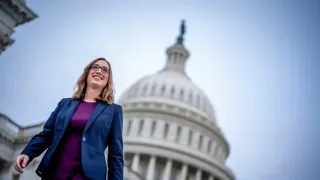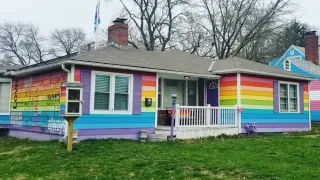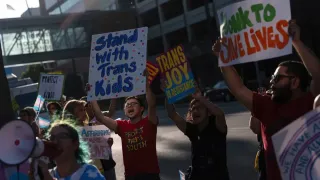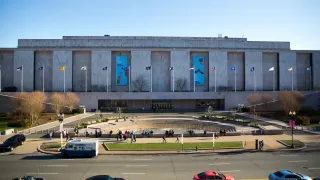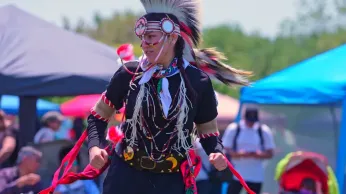
Aug 1
Native Tribal Leaders Defend Gender-Affirming Care Amid Federal and State Rollbacks
READ TIME: 3 MIN.
In 2025, a series of federal and state measures targeting gender-affirming care have unsettled LGBTQ+ and two-spirit Native Americans across the United States. In January, an executive order signed by President Trump recognized only two sexes—male and female—and terminated diversity, equity, and inclusion programs within the federal government. Subsequently, the Indian Health Service (IHS) was compelled to remove a webpage describing two-spirit people, although it was later restored following a court order. The page now carries a disclaimer rejecting “gender ideology” and asserting the existence of only two sexes, in line with the administration’s stance .
These policy shifts have had immediate consequences: tribal citizens report increased difficulty accessing gender-affirming care, including delays or denials of hormones and other treatments, even in states where such care remains legal . The result, according to advocates, has been widespread uncertainty, and some community members are considering leaving the country in search of supportive care environments.
“Two-spirit” is a term created by Indigenous LGBTQ+ leaders to describe Native people who embody both masculine and feminine spirits, or otherwise fall outside Western gender binaries. Far from being a recent development, two-spirit people have been integral to many Native cultures since before colonization . In 2021, a council of two-spirit elders formally defined the identity as “a culturally and spiritually distinct gender exclusively recognized by Native American Nations.”
As states and federal agencies attempt to restrict gender-affirming care, Native American leaders have responded by emphasizing tribal sovereignty—their inherent authority to govern their own affairs, including health care for their citizens. “Tribal sovereignty trumps state and federal efforts to restrict or ban gender-affirming care for their LGBTQ+ and two-spirit citizens,” declared representatives at a recent gathering .
The chilling effect of these restrictions is being felt in tribal communities across the country. Accounts from tribal citizens detail instances where individuals have been denied hormone therapy or faced lengthy delays in receiving medically necessary treatments, even from providers that had previously offered supportive care .
At the Two Spirit Conference held in northern Nevada in June, organizers and participants shared stories of hope and resilience amid adversity. “I want people to not kill themselves for who they are,” said Myk Mendez, a trans and two-spirit member of the Fort Hall Shoshone-Bannock Tribes in Idaho and an event organizer. “I want people to love their lives and grow old to tell their stories” .
Community leaders and advocates, such as Itai Jeffries of the Occaneechi people in North Carolina, have described a pervasive fear among two-spirit and transgender tribal citizens. Many are uncertain about their medical future and some are exploring the possibility of relocating to countries with more protective health care policies .
Congress has also weighed in on the issue. The Transgender Health Care Access Act, introduced in March 2025, would provide grants to rural health clinics, Indian Health Service facilities, and tribal health programs to bolster access to evidence-based, lifesaving health care for transgender people. The bill, if passed, would fund provider training, community review boards, and efforts to update health records to support inclusive care .
However, implementation remains uncertain amid continued federal scrutiny. The Federal Trade Commission announced a public inquiry into potential violations of federal consumer protection laws by providers of gender-affirming health care, seeking to determine if patients have been exposed to unsupported claims or experienced harm—particularly minors .
Despite these mounting challenges, Native communities remain steadfast in defending their traditions and the rights of their LGBTQ+ and two-spirit members. “There is a chilling effect,” said Itai Jeffries, who identifies as trans, nonbinary, and two-spirit, reflecting growing anxiety amid the policy changes .
Yet tribal leaders and advocates continue to assert that gender diversity has always existed in their cultures, and that care and acceptance are matters of sovereignty and survival. Their efforts exemplify the intersection of Indigenous rights and LGBTQ+ advocacy, as they call on allies to recognize both the unique heritage and the urgent needs of two-spirit and transgender Native people.
As policy debates continue, Native communities are working to ensure that the voices of their LGBTQ+ and two-spirit citizens are not silenced, and that their right to culturally competent, gender-affirming health care is protected for generations to come.
